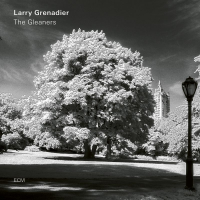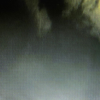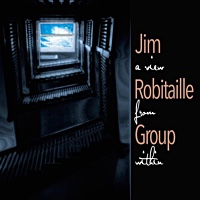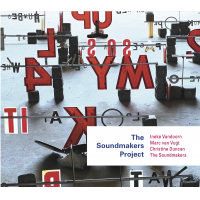Home » Jazz Articles » Year in Review » Arian Bagheri Pour Fallah's Best Releases Of 2019
Arian Bagheri Pour Fallah's Best Releases Of 2019
Consequently, if you find the following marked with a red letter, forget not what comes before it, for even if resembling a line and gracefully colored, the red seen is seldom flat paint.
 Christine Abdelnour & Chris Corsano
Christine Abdelnour & Chris Corsano Quand fond la neige, où va le blanc?
Relative Pitch Records
From its metallic, sinewy stems to the trembling and radial convulsions of its termini, Quand fond la neige, où va le blanc? shines bright as the moon in the pitch-black, endless sky of free improvisation, owing much to Abdelnour's exceptional and articulate use of electroacoustic music. Hers is not jazz meddled by electroacoustic or electronic music, as is often the case with ensembles benefiting from turntables, electronics and the like. It is where the two become one and the same, unrecognizable by method but also when heard. Such is the saxophone, described by her, aptly so, as an "extension of [her] body," (Interview, Agosto Foundation) which reasserts the material rigor of her work, analogous only to the cinematic language of David Cronenberg, in its intimate links between consumption and creation.
 Anthony Braxton
Anthony Braxton GTM (Syntax) 2017
New Braxton House
Braxton's ghost trance music (GTM) may well be deemed the acme of compositional systems. The system to end all systems, in eschatological terms. Its latest, syntactical iteration, GTM (Syntax) 2017, arrived earlier this year in a commodious 12-CD boxset, extending its material implications equally beyond the reach of sound poetry (Jaap Blonk, Paul Dutton) and Hugues Dufourt's musique spectrale (better known to English-speaking readers as spectral music). The GTM (Syntax) 2017 is crowded, preposterous, and deathless—just as ghost trance music should be. It is unlistenable in the same sense that William Gaddis' JR is "unreadable." (George Steiner, The New Yorker) Between Braxton's unlistenable and Gaddis' unreadable one may too wonder what has changed that no similar remarks are made today. A lack of concern on the consumer's end, and a sense of respect on the critic's, perhaps. For all that, Braxton's remains consecrated to thought—thought as impossible as excessive for forms as such. Apollonian it may be, yet it never ceases to violate formal bounds in ways that do not startle, and in turn, procure more undue thought.
 Partch Ensemble
Partch Ensemble Sonata Dementia
Bridge Records
In the sole and separate outside, where cages are execrated and institutes destined to oblivion, the ensemble Partch... plainly would not exist. The same outside, however, houses the individual, Dionysian music of Harry Partch, upholding it metaphysically and moreover ethically. Such is the paradoxical state of performing Partch's music today. A necessity, performance of such illusive but concrete and mortal compositions, which best readily today's endless re-redressings of Bachs and Feldmans combined, nevertheless introduces its own share of ethical impasse. In spite of this, what ensemble Partch does is but necessary evil. And if anything, the release Sonata Dementia, is a testament to how relevant, resistant, and timeless an individual all too individual music can be. Easily the album of the year, had it not been for the belatedness of its source material. Also, let this be a proper Dionysian answer to the lovable but too Apollonian previous pick, of Braxton. This is music to dance to and weep at once. Intellect is present but so extreme in material preceding creation that there simply is no room for it after the creative take-off.
 James Andean
James Andean Assemblance(s)
Empreintes DIGITALes
Electroacoustic music as of late has sadly dissolved into two secluded poles of serious and popular, each serving an also secluded audience. Whereas both can be equally tame and tiring, especially the latter which is inherently furniture music redressed as concrete, James Andean's Assemblance(s) proves one of those rare exceptions. Andean's penchant for improvisation is one key determinant, as "founding member of improvisation and new music quartet Rank Ensemble and interdisciplinary improvisation ensemble The Tuesday Group." Unreliability, what is chiefly lacking in nearly all electroacoustic music produced today, governs before all else Andean's sound-worlds, sound-worlds tentatively menacing yet never lacking in playfulness and psychic acrobatics.
 Georg Ruby / Stephan Goldbach / Daniel "D-Flat" Weber
Georg Ruby / Stephan Goldbach / Daniel "D-Flat" Weber Village Zone
JazzHausMusik
The piano trio is one of the best balanced configurations in jazz, principally in that it allows for ample unconsumed space, otherwise occupied by wind instruments, among others. The Andrew Hill Trio, the Kris Davis Trio, notables examples are plenty, the closest of which to Georg Ruby's may be the Eric Watson Trio, whose music, except for Jaded Angels (2006, Act) is still too tender to be considered for a proper analogy. Ruby is an adept, mechanical performer, not unlike Taborn. But where Craig Taborn is pragmatic, Ruby, like a German idealist, remains methodical yet metaphysical. His "instant composing" too is functional but frenzied, as in the piece Legrand, whereby in almost villainous manner, the trio beset the set, the likes of which are rarely found among structured works of jazz.
 Thor Harris & Rob Halverson
Thor Harris & Rob Halverson Fields Of Innards III
Joyful Noise Recordings
The focus release in the whole of which Fields Of Innards III is a part, Is Adam OK?, is indeed OK. Innards III, on the other, is not. It is macabre, gentle, dense, hollow, crescent, complete, but never OK. It weeps, it laughs, and it does all of that at once, never one at a time or one alone. It is an impossible record, hence the music industry's repeated rejection of its predecessors as documented in the notes accompanying the album. "One Explanation..."It is alive! And according to industrial monstrosity, it should never be.
"When you have given him a body without organs, then you will have delivered him from all his automatisms and restored him to his true liberty.
Then you will teach him again to dance inside out as in the delirium of dance halls and that inside out will be his true side out."
-Artaud (Pour en finir avec le jugement de dieu)
 Larry Grenadier
Larry Grenadier The Gleaners
ECM Records
Mystical, remote, and even more strangely, always-already in close quarters. Larry Grenadier's The Gleaners, while not as precarious ranks still among the most distinct solo works for the double bass, including yet not limited to Paul Rogers' Listen (2002, Emanem), John Lindberg's Comin' & Goin' (1981, Leo Records), Miroslav Vitous' Emergence (1986, ECM), and Peter Kowald's Was Da Ist (1995, FMP). Whether transforming other works of vocal (George Gershwin, Rebecca Martin), instrumentals (Paul Motian, John Coltrane), or creating his own, Grenadier's concern is creation never fidelity. Having made the listener's job this easy, Grenadier too requires of his listeners one demanding task, that of integral enjoyment, integral acquisition and use. With this, breeze the easy breeze, glean as you listen—gleaner of souls.
 Hermann Nitsch / Koehne Quartet
Hermann Nitsch / Koehne Quartet Albertina Quartett
Trost Records
In recent years, thanks at large to Tochnit Aleph and Trost, many of Nitsch's previously unrecorded works have materialized and surfaced as albums. The former has also been responsible for releases by Gerhard Rühm, whose Interpretation of Josef Matthias Hauer, the twelve-tone pioneer and the man misunderstood by Adorno, is notable. As most of these encompass symphonies and traditional musical works, this raises a familiar problem, namely that Nitsch's compositional output, be it his organ or chamber music has always been secondary to the exhilarating, august, and ceremonious field recordings of his performances, including the 51-disc, Das 6-Tage-Spiel Des Orgien Mysterien Theaters (2003, Cortical Foundation). The Albertina Quartett, however, makes for a remarkable reconsideration. It consistently eclipses its serialist roots, in ways that are always rich with emotion and character, and as such, never strictly Apollonian as in the usual, minimal and/or spectral sense. Truly a violation and consummate transgression of the dialectic itself. Gut gemacht.
 Fox Millions Duo
Fox Millions Duo Biting Through
Thrill Jockey
Kid Millions and Greg Fox, demonstrate rather candidly on Biting Through, that the future of jazz drumming lies elsewhere, namely outside jazz. FMD is testament to Max Roach's remark as concerns subordination of the world of music to that of sound, insofar as the adjective "revolutionary" is concerned. The pair, given enough time and coaction, especially in the freeform orbit where they presently have some but not sufficient involvement, may well join the ranks of William Winant, Eddie Prevost (whose Matching Mix was released much to the neglect of the press earlier this year on Earshots! Recordings), and Steve Noble, as they immediately promise substance equal to if not exceeding that of Weasel Walter.
 Dave Douglas / Uri Caine / Andrew Cyrille
Dave Douglas / Uri Caine / Andrew Cyrille Devotion
Greenleaf Music
If there is one individual in jazz who knows how to speak in the blue, melancholy language of the azure, that's Dave Douglas. Joined by Cyrille and Caine, Devotion is nothing short of grand, abstractly. And this abstraction, this premise is translated in the most beautiful, varied way on the record, wherein myriads of songs and stories are chronicled, all in the perfect absence of words. Devotion is both evocative and profound.
 Earth
Earth Full Upon Her Burning Lips
Sargent House
While many have tried to locate Full Upon Her Burning Lips in the Earth canon, others have tried to dislocate and treat it in light of works of other coincident collectives. Either approach is but refraining from addressing Earth's core character, to which Dylan Carlson decidedly makes skeletal return. In journalism, character is misunderstood as aesthetics, as it will remain as such, where everything must have a purpose. Indeed, Full Upon Her Burning Lips spans markedly vaster terrain than The Bees Made Honey In The Lion's Skull (2008, Southern Lord) of approximately a decade ago, on which none other than Bill Frisell made an appearance. To the naked, myopic eye, however, only configurations and arrangements are existent, which have numerically diminished. The core character phrases and riffs, especially as they are all too familiar for the critic whose burden of listening renders familiarity synonymous with recognition and from there neglect, are twice as many and masterfully put together. A delicacy, not for the faint of recognition.
 Glenn Branca
Glenn Branca The Third Ascension
Systems Neutralizers
What better way to terminate a line than with the terminal, ever-terminating circle that is Branca's third and last ascension? While more compact and fractional, as compared to his later works, The Third Ascension, much like The Ascension (1981, 99 Records) and its sequel (2010, Systems Neutralizers), sets before the listener an equally urgent, cutting landscape. Matching Francis Bacon's scathing views on Rothko and abstract tendencies en masse—Bacon, whose 'Painting 1946' is rendered in black and white as the cover art—Branca's farewell release stands in sharp opposition to what the press continues to pigeon-hole his works into, namely, minimalism, urging the cattle to wake up, to ascend and to transgress/transcend, as opposed to lead them into their slow, numbing slaughter.
Tags
Year in Review
anthony braxton
Arian Bagheri Pour Fallah
Christine Abdelnour
Chris Corsano
Partch Ensemble
James Andean
Georg Ruby
Stephan Goldbach
Daniel "D-Flat" Weber
Thor Harris
Rob Halverson
Larry Grenadier
Hermann Nitsch
Koehne Quartet
Fox Millions Duo
Dave Douglas
Uri Caine
Andrew Cyrille
Earth
Tetuzi Akiyama
Nicolas Field
Gregor Vidic
PREVIOUS / NEXT
Support All About Jazz
 All About Jazz has been a pillar of jazz since 1995, championing it as an art form and, more importantly, supporting the musicians who make it. Our enduring commitment has made "AAJ" one of the most culturally important websites of its kind, read by hundreds of thousands of fans, musicians and industry figures every month.
All About Jazz has been a pillar of jazz since 1995, championing it as an art form and, more importantly, supporting the musicians who make it. Our enduring commitment has made "AAJ" one of the most culturally important websites of its kind, read by hundreds of thousands of fans, musicians and industry figures every month.
























